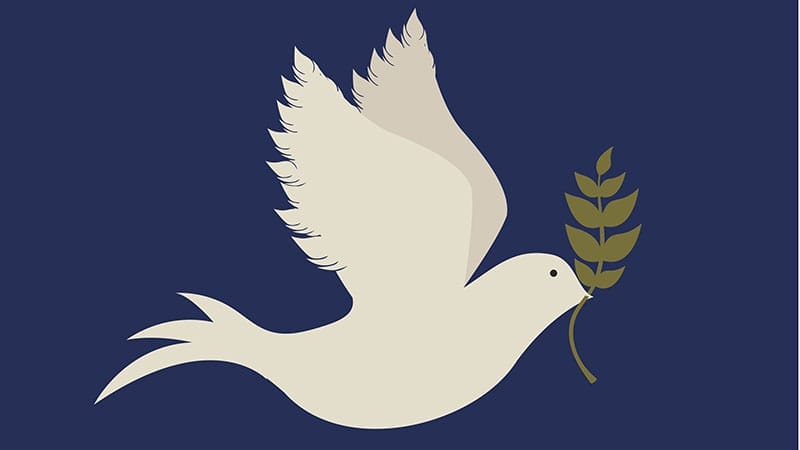I am often asked how I got into the impact investing space. When I answer that it has been a life journey to fuse development and finance, my answer is at times viewed as arrogant. I wish it was arrogance. Then perhaps I would not be driven so much by my heart in taking on the responsibility of shaping the space.
Recently, we at IIX (Impact Investment Exchange Asia—a company I founded in 2009) were approached by United Nations Development Programme (UNDP) to help incorporate innovation and rethink peace-building efforts through impact investing. While working on this initiative, it struck me that perhaps my journey goes beyond the lofty goals of bringing together development and finance. Perhaps it starts from a very simple search to bring peace—by someone who has experienced war and destruction up close.
One of my earliest memories is when I was 3 years old, growing up in East Pakistan during the liberation war for Bangladesh in 1971. Two planes, an F-86 and a MiG-21, were battling in the sky above my house. The dogfight ended with one crashing in my backyard, a moment etched into my memory for a lifetime.
Fast-forward 40 years, and I still find myself living in a world shaped by war, the weapons more advanced, the motives more sophisticated. Strangely, the solutions remain relatively unevolved. The lexicon around war and conflict resolution continues to be dominated by words like “recovery,” “rehabilitation” and “reconciliation.” The conversation is still led by governments, donors and nongovernmental organizations. Intervention continues to focus on “today,” with countries pouring millions of dollars into keeping our seas free of battleships and our skies free of dogfights—for now.
We live in a world with parallel paradigms polarized between development and capitalism. The questions are: How can we end war and conflict? How can we maximize profits? Are these even the right questions? If we are not asking the right questions, how can we aim to have the right answers?
In the summer of 2015, IIX and UNDP’s N-Peace Initiative joined forces and decided to change the narrative to instead ask:
- Why is the dialogue shaped exclusively by people who have never seen, heard or felt war?
- How can we empower women to become solutions to peace instead of victims of conflict?
- Who is best positioned to unlock new sources of capital to transition from recovery to resilience?
- What must we do to harness the power of innovation and technology to scale solutions?
- How can we balance sustainable business profits with sustainable peace?
It is this new way of thinking about peacebuilding that gave birth to the IIX N-Peace Innovation Challenge. The challenge aims to act as a platform for peacebuilding and business to converge by leveraging the power of the impact investing movement now taking on the world. These investments intend to generate social impact over and above financial returns. Through impact investing, I believe we can address two key systemic gaps in Asia’s peace spectrum today:
Funding Gap
Research reveals the biggest challenge faced by peacebuilders across Asia is lack of access to capital, which severely impedes progress and growth. Private-sector capital can reinforce, rather than replace, funds mobilized by traditional players.
One now hears from people sitting in impact investing panels that there are not enough investable companies out there. That unfortunately is a view from a panel. If one spends even a few days in the field in the 13 countries in which IIX operates—from Afghanistan to the Philippines—one finds thousands of companies that are creating incredible social impact and have the potential to grow and deliver a financial return as well.
The question is whether one is willing to take the time and resources to get these organizations investment ready.
Actors Gap
The world needs more innovative, inclusive interventions by new players who have a deep understanding of issues at the grassroots level, can bring in various stakeholders and are positioned to pivot the current top-down approaches to peacebuilding.
Impact enterprises, high-impact small to midsize businesses or revenue-generating nonprofits, use market-based solutions to reduce a population’s risk of relapsing into conflict, whether it be through tackling energy poverty, generating livelihood opportunities or providing access to affordable health care.
Through the IIX N-Peace Innovation Challenge, we have identified six impact enterprises that serve as leading lights: Arzu Studio Hope (founded by Connie Duckworth WG79), Yayasan Kopernik, Koe Koe Tech, Higher Ground, Buksh Energy and Coffee for Peace. Winners received a trip to New York in October to present to the United Nations, global recognition for their efforts, and amplification of their work through media and social networks.
They represent six different countries: Afghanistan, Indonesia, Myanmar, Nepal, Pakistan and the Philippines. And the winners are truly a kaleidoscope of inspiring solutions. They represent not just incredible geographic diversity but also come from different sectors, ranging from health care and energy to education and agriculture. They are brewing, weaving, igniting and democratizing peace across regions and are set to revolutionize the way the world will think about peace and business in the future.

























